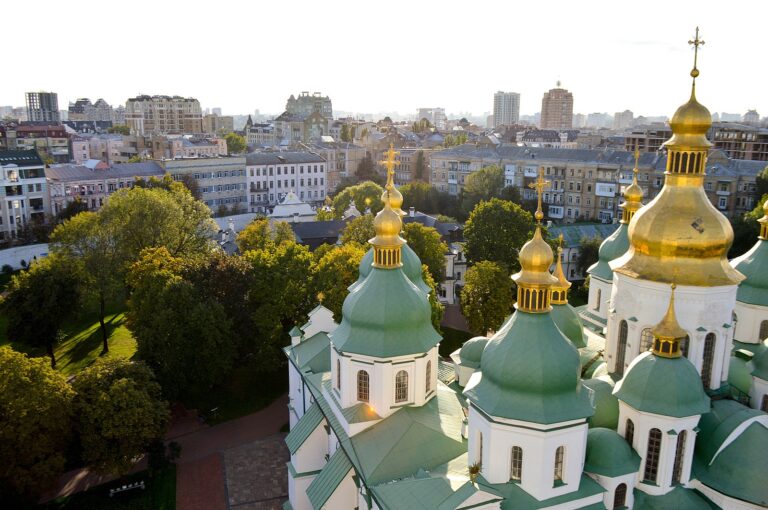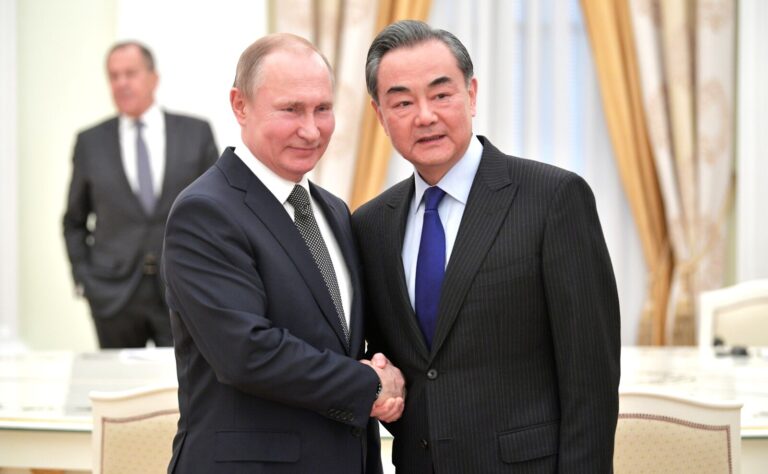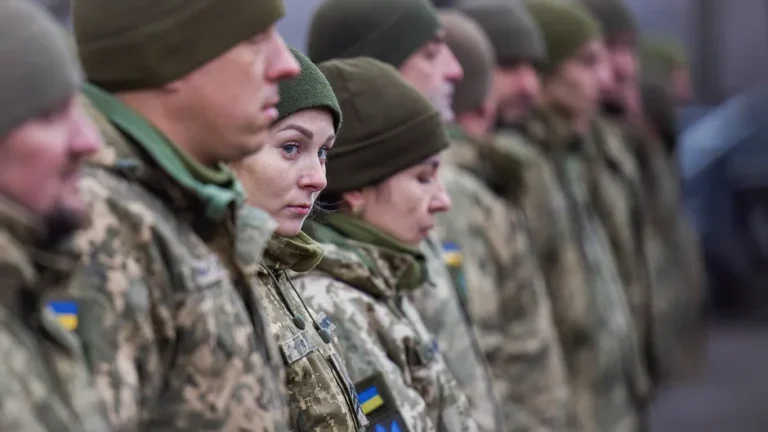
Ukraine is eager to cut deals with China as it confronts the West’s moves to allay Russian concerns. Whether Kyiv’s moves are a sign of a larger foreign policy adjustment or just a bluff aimed to mitigate faltering ties with the EU and the US, they could beget big consequences.
‘Chinese Card’
On June 30, Ukraine touted an agreement with China, which proposes revamping the country’s decrepit infrastructure. The decision comes following a US-German resolution to finish the Nord Stream 2 pipeline, despite longstanding concerns of Kyiv and other CEE nations. Yet, perhaps the biggest motivation was the growing unwillingness in the West to advance Ukraine’s NATO/EU aspirations.
The current state of affairs pushes Ukraine to find alternatives in foreign policy. China, with plenty of cash and political clout, comes as an obvious choice resulting in the signing of the bilateral agreement in June. The document outlines China’s willingness to invest in railways, airports, and ports, as well as telecommunications infrastructure across Ukraine. But otherwise, the agreement details few specifics.
The available details from the deal fit comfortably into the pattern China has been following across Eurasia. For example, China signed similar deals with Iran, Egypt and Saudi Arabia among others, demonstrating its willingness to penetrate those states’ vital infrastructure. Still, the documents can be also characterized as an umbrella agreement that serves as a roadmap rather than an accord listing concrete details and commitments.
The China-Ukraine agreement is all the more surprising as Kyiv rebuffed earlier this year a Chinese proposal to buy a Ukrainian aerospace company, Motor Sich.
Nevertheless, there are several reasons behind the rapprochement. First and foremost, it is about Ukraine adjusting its foreign policy stance to the state of economic relations. China is now Ukraine’s biggest single-country trade partner outstripping Russia and having a 14.4 percent share of the country’s imports and 15.3 percent of its exports. Perhaps fearful of possible Chinese countermeasures over the Motor Sich decision, Kyiv has been open to mending ties with Beijing with the June agreement.
Secondly, it paves the way for a more active role in China’s near-trillion-dollar Belt and Road Initiative (BRI), which aims at connecting China with the European market across the heart of Eurasia. Ukraine was among the first to endorse the initiative but has avoided signing memorandums on cooperation similar to what China has done with many others.
More immediately, the tilt toward China follows Kyiv’s decision to remove its name from an international statement about human rights abuses in China’s Xinjiang. While Ukraine initially joined the initiative, together with 40 other states, Kyiv abruptly changed its mind on June 24. It has been confirmed that the withdrawal followed Chinese threats to limit trade and deny access to COVID-19 vaccines for which Ukraine had already paid.
Multi-Vector Policy
Some larger geopolitical dynamics are also at play, such as Kyiv’s attempt to acclimate to the changing world order and the growing global competition between Beijing and Washington. In this environment, Ukraine might want to carve out an equidistant place between the two powers so as to avoid possible backlash from siding clearly with either of them.
As such, Ukraine appears to be embarking on a multi-vector foreign policy. It would allow Kyiv to alleviate its dependence on the West and seek lucrative economic and political ties with large Eurasian states. Put simply, relations with the West did not deliver on the expected benefits. The country was not offered NATO or EU accession, while the collective West’s consistent concessions to Russia undermine Ukraine’s interests. Ukraine has also often tended to look at China and other Eurasian powers from the ‘Western perspective’, which limited its options.
In Kyiv’s understanding, elimination of this obstructive dependence would enable it to find new partners able to bring in investments and ideally political support in multilateral organizations. China undoubtedly can be such a partner.
Kyiv’s calculations are more understandable when taken in view of its larger diplomatic readjustment in the region. For example, Ukraine recently began building closer relations with another Eurasian power in Turkey. When Ukrainian president Volodymyr Zelensky visited Istanbul in April 2021, nascent bilateral military ties were seen as a new chapter in the countries’ relations. Most indicative of this shift, a memorandum was signed on the creation of joint defense-industrial projects, which includes joint development of unmanned aerial vehicles in Ukraine.
The story of Turkey could serve as a microcosm, whereby Kyiv displayed that it is more interested in balancing the pressure from Russia and mitigating the failures in its pro-Western foreign policy course. Ukraine thus foreshadowed its increasingly multi-vector foreign policy as a solution to its geopolitical problems. In Kyiv’s understanding, rapprochement with China and Turkey could mitigate threats emanating from Russia as both Beijing and Ankara enjoy closer ties with Moscow, but nonetheless consider it a competitor.
The multi-vector foreign policy for Ukraine however does not mean abandoning its pro-Western cause. It rather involves seeing its NATO/EU aspirations as complementary with the closer economic ties with China and others. It will require an agile foreign policy and leveraging the country’s geopolitical assets.
New Type of Bilateral Relations
Ukraine’s behavior might herald the birth of what could be characterized as a Eurasian model of bilateral relations. Across the continent, the notion of traditional alliances is being gradually replaced by partnerships. Devoid of formal obligations, China, Iran, Turkey and Russia find more space for interaction and see a larger pool of opportunities across the vastness of the supercontinent. Bigger maneuverability makes their foreign policy more agile in finding a common ground for cooperation.
The Eurasian model is a byproduct of an evolving global order in which each state with geopolitical influence recalibrates its foreign ties to fit into the post-unipolar world. Russia and China officially refuse to have an alliance – indeed, they claim an alliance would undermine their purportedly benevolent intentions toward one another. More specifically, the concept relates to how China sees the future world order. It opposes alliances – the ‘relic’ from the Cold War era.
Thus, the shift in Kyiv’s foreign policy could be part of this Eurasian trend where Ukraine seeks to construct its Asia policy which would better correspond to the unfolding China-US competition, Asia’s economic rise, and most of all, the failure to become a NATO or EU member state.
Reality Check
However, closer ties with China and most of all the dependence on Beijing’s investments also involves risks. China’s infrastructure projects are mostly financed through loans, which poorer and weaker countries are unable to repay. Often, ownership of the sites ends up in Chinese hands.
Chinese involvement in Ukraine’s critical infrastructure could also risk giving control over strategic technologies to Beijing, which would be channeled to China and successfully used to advance Chinese interests.
For Kyiv, dependence on Beijing also involves risks because of China’s close partnership with Russia. Dangers could be manifested in a concerted pressure on Ukraine in international organizations, or even China heeding Russian fears and abandoning infrastructure projects which would harm Russian interests.
The June agreement is an umbrella deal that lays out the foundation for deeper cooperation, but in no way guarantees its fulfillment. This could mean that Ukraine only sought to restore worsening bilateral relations with China following the Motor Sich saga. Alternatively, Kyiv might merely be trying to raise stakes in its stagnated relations with the West and hold Washington to account, signaling that it can successfully navigate between geopolitical poles if need be. One way or another, China looks set to play a bigger role in Ukraine‘s foreign policy.
Written by
Emil Avdaliani
emilavdalianiEmil Avdaliani is a research fellow at the Turan Research Center and a professor of international relations at the European University in Tbilisi, Georgia. His research focuses on the history of the Silk Roads and the interests of great powers in the Middle East and the Caucasus.


